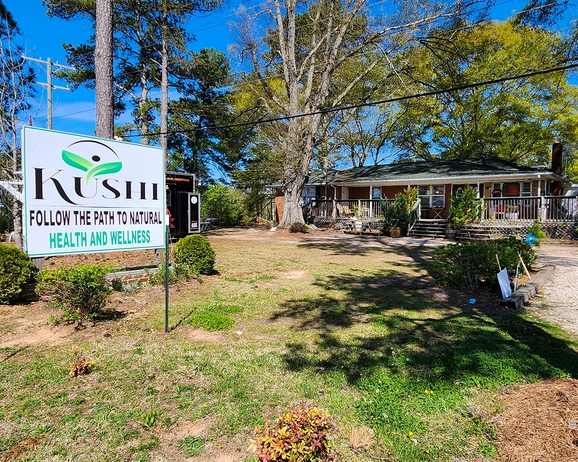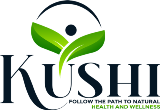We explain each compound, how it works, and what the law says about it. You’ll also learn which products are legal, how they affect the body, and what to look out for.
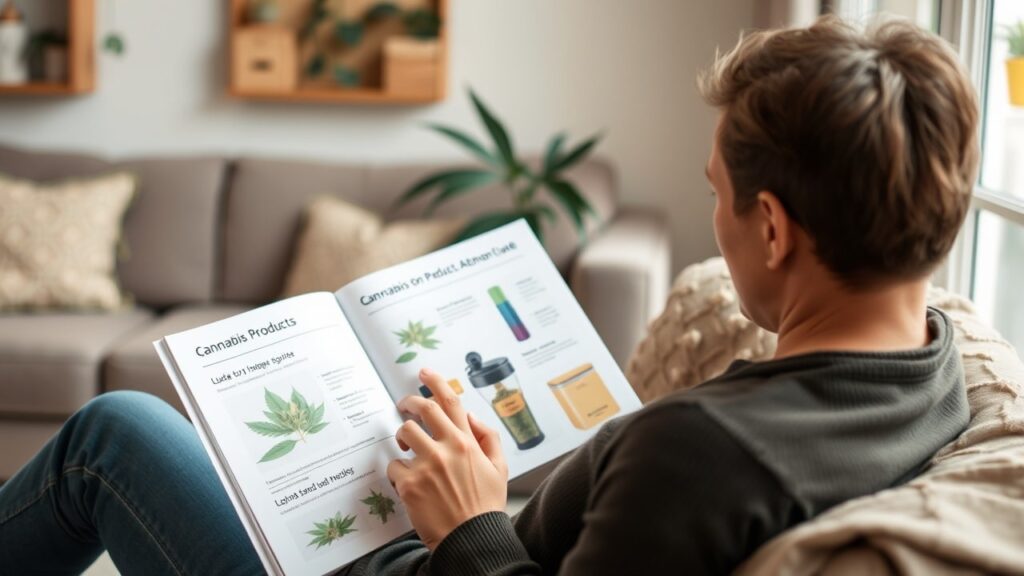
The Definitive Guide to Legal THC & Cannabinoid Products in South Carolina
This guide aims to provide clarity on the diverse range of THC and cannabinoid products legally accessible in South Carolina. Cannabis laws keep changing, so it’s important to know the difference between compounds like THC and CBD. In South Carolina, the rules are more strict than in some other states. This guide explains what THC and CBD products people can use or sell in South Carolina. It helps readers understand the rules clearly.
If you run a business, use cannabis products, or just want to learn, this guide is for you. We keep it simple so you can understand the laws in South Carolina with confidence.
Introduction

Purpose of the Guide
The primary purpose of this guide is to help consumers better understand the different types of THC and cannabinoid products available legally in South Carolina. As the legal landscape surrounding cannabis and its derivatives continues to evolve, it is essential to have a clear and concise resource that outlines the various options available, their effects, and their legal standing within the state of South Carolina. This information will empower consumers to make informed decisions about which products best suit their needs and preferences, all while remaining compliant with state law.
Overview of THC and Cannabinoid Products
THC, or tetrahydrocannabinol, is the psychoactive compound found in the cannabis plant that produces the “high” associated with marijuana. CBD, or cannabidiol, is another prevalent cannabinoid that is non-psychoactive and is often used for its potential therapeutic benefits. THC and CBD come from marijuana or hemp plants. Producers extract these cannabinoids to make many different products in South Carolina. Each product has different amounts of THC, which affects its legal status. These cannabinoids work with the body’s endocannabinoid system. They affect how the body handles pain, mood, and other functions.
Legal Status of THC in South Carolina

Current Laws Governing THC
Federal and state law together shape the legality of THC in South Carolina, with the 2018 Farm Bill playing a key role. This bill legalized hemp at the federal level, defining it as cannabis that contains less than 0.3% delta-9 THC by dry weight. South Carolina follows this standard and permits the sale and possession of hemp-derived products that meet this THC limit. If a product contains more than 0.3% delta-9 THC, the state treats it as marijuana, which remains illegal and classified as a controlled substance under South Carolina law.
Medical and Recreational Use
South Carolina does not currently have a medical marijuana program, meaning that the medical use of marijuana in South Carolina remains illegal. Similarly, recreational use of THC remains illegal in South Carolina. Despite growing legalization efforts nationwide, the state of South Carolina has not yet legalized cannabis for either medical or recreational purposes. Therefore, the only legal alternatives to THC in South Carolina are hemp products that contain less than 0.3% delta-9 THC by dry weight, according to the current laws in South Carolina.
Penalties for THC Possession
Possessing cannabis products exceeding the legal THC content in South Carolina can result in significant penalties. Under South Carolina law, marijuana is classified as a controlled substance, and possession can lead to fines, jail time, and a criminal record. The severity of the penalties depends on the amount of marijuana possessed and any prior convictions. It is crucial to understand the difference between legal hemp-derived products and illegal cannabis products to avoid legal repercussions in the state of South Carolina.
Types of THC Products
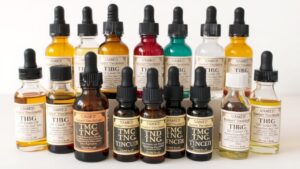
Δ3‑THC (Delta 3 THC)
Delta-3 THC is an isomer of delta-9 THC, but it is much less studied. Consequently, its effects are not well understood. There is not much information about the creation or extraction of delta-3 THC. Like other forms of THC, delta-3 THC is a cannabinoid. Its psychoactive properties are uncertain, but due to its structural similarity to other psychoactive cannabinoids, it may have some psychoactive effects. Delta-3 THC is not commonly found in cannabis products and its legality in South Carolina is unclear.
Δ4‑THC (Delta 4 THC)
Delta-4 THC is another uncommon isomer of THC, with even less research available than delta-3 THC. The details of its production and extraction processes are scarce. Like delta-9 THC, it is a cannabinoid. Its psychoactive effects are largely unknown. Delta-4 THC is hard to find in hemp products, and its legal status in South Carolina is unclear because it’s not widely available.
Δ7‑THC (Delta 7 THC)
Delta-7 THC belongs to the THC isomer family but appears far less commonly than delta-9 THC. Researchers haven’t studied it extensively, and there’s little known about how producers extract it. While some believe it may have psychoactive effects because of its structural similarities to other THC types, its actual impact remains unclear. In South Carolina, the legal status of delta-7 THC remains uncertain. Most cannabis and hemp products don’t include it, as it’s considered a rare cannabinoid.
Δ8‑THC (Delta 8 THC)
Delta-8 THC is a type of THC that is similar to delta-9 THC but less strong. It can still cause a high, but it is milder. Delta-8 comes from hemp. That makes it legal under the 2018 Farm Bill, as long as the product has less than 0.3% delta-9 THC by dry weight. In South Carolina, delta-8 THC is legal if it follows this rule. Many legal THC products now use delta-8 as their main ingredient.
Δ9‑THC (Delta 9 THC)
Delta-9 THC is the main compound in cannabis that causes a high. If it comes from cannabis plants with more than 0.3% THC by dry weight, it’s considered marijuana. That makes it illegal in South Carolina. But if Delta-9 THC comes from hemp and stays under 0.3%, it’s legal under federal law. That also makes it legal in South Carolina.
Δ10‑THC (Delta 10 THC)
Delta-10 THC is another isomer of THC, similar to delta-8 THC, and possesses psychoactive properties. It can be created from hemp through isomerization. Like delta-8 THC, delta-10 THC is legal in South Carolina as long as the final product contains less than 0.3% delta-9 THC by dry weight, according to federal and state law. Because it is derived from hemp, it is a legal alternative to delta-9 THC where cannabis laws prohibit it.
Δ11‑THC (Delta 11 THC)
Delta-11 THC forms in the body after someone consumes delta-9 THC. This often happens when a person eats edibles. Delta-11 THC causes a high and can feel stronger than delta-9 THC for some users. The body creates it by breaking down delta-9 THC during digestion. You usually will not find Delta-11 THC in cannabis or hemp products by itself. This makes the legal status in South Carolina unclear. Laws depend on how the compound is made and how a person uses it. Most stores do not sell Delta-11 THC as a separate product.
THC-O acetate (THCO) and other esters
THC-O acetate, also known as THCO, is a strong synthetic form of THC. Labs usually make it by adding chemicals to delta-8 THC or delta-9 THC. It affects the mind and may be stronger and work faster than regular THC. In South Carolina, its legal status is unclear because the law doesn’t clearly mention it. If the THC-O comes from hemp and stays within the legal delta-9 THC limit, it might be allowed under state law.
THCP and THCP-O acetate
THCP (tetrahydrocannabiphorol) is a natural cannabinoid in cannabis. It acts much stronger than delta-9 THC. THCP-O acetate is an acetylated version of THCP, potentially further increasing its potency. These compounds are psychoactive. Their legal status in South Carolina is ambiguous. Given their novelty and potency, they may be subject to scrutiny under existing cannabis laws. If derived from hemp and contain less than 0.3% delta-9 THC, they might be considered federally legal and, thus, legal in South Carolina.
Δ8‑THCV (synthetic)
Delta-8 THCV is a lab-made version of THCV, which is a type of cannabinoid. THCV works differently from THC. Scientists make Delta-8 THCV using chemical methods. It may have mind-altering effects, but experts are still studying it. Because it is synthetic, its legal status in South Carolina is unclear. South Carolina laws do not clearly say if this compound is legal or not. This makes things confusing for users and sellers. Right now, Delta-8 THCV is in a legal gray area.
Types of CBD Products
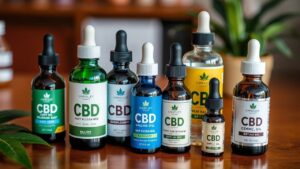
CBD (Cannabidiol)
CBD, or cannabidiol, is a cannabinoid found in the cannabis plant. It does not cause a high. In South Carolina, most CBD comes from hemp. That’s because the law says cannabis products must have less than 0.3% delta-9 THC by dry weight. This rule helps keep CBD legal in the state. CBD is not psychoactive. Its legal status in South Carolina is dependent on the source and THC content; hemp-derived CBD with less than 0.3% delta-9 THC is legal.
CBDA (Cannabidiolic Acid)
CBDA is the raw form of CBD found in unheated cannabis plants. When heated, it turns into CBD through a process called decarboxylation. CBDA does not cause a high, but it may offer different health benefits than CBD. In South Carolina, CBDA is legal if it comes from hemp and has less than 0.3% delta-9 THC, following both state and federal laws.
CBDV (Cannabidivarin)
Cannabidivarin or CBDV, is another non-psychoactive cannabinoid found in the cannabis plant, particularly in certain strains. CBDV is similar in structure to CBD, but has its own unique properties. The cannabinoid is not psychoactive, and its effects are currently being studied. If derived from hemp and contains less than 0.3% delta-9 THC, the compound is federally legal and thus legal in South Carolina.
CBDVA (Cannabidivarinic Acid)
Cannabidivarinic acid or CBDVA,, is the acidic precursor to CBDV in the cannabis plant. CBDVA converts to CBDV when heated. Like other acidic cannabinoids, it is non-psychoactive. Its potential therapeutic effects are an area of interest. The legal status of CBDVA in South Carolina mirrors that of CBD and CBDV. If derived from hemp and contains less than 0.3% delta-9 THC, it aligns with federal and state regulations.
CBG (Cannabigerol)
CBG stands for cannabigerol. People call it the “mother cannabinoid” because other cannabinoids like THC and CBD come from it. Most cannabis strains have only small amounts of CBG. It does not cause a high. That means it is non-psychoactive. In South Carolina, CBG is legal if it comes from hemp. The hemp must have less than 0.3% delta-9 THC. This rule follows the 2018 Farm Bill and state law.
CBGA (Cannabigerolic Acid)
CBGA, or cannabigerolic acid, is the precursor to CBG, as well as other major cannabinoids like THC and CBD, in the cannabis plant. Enzymes in the cannabis plant convert CBGA into THCA, CBDA, and CBCA. CBGA itself is non-psychoactive and has potential therapeutic benefits. Similar to other hemp products, CBGA derived from hemp and containing less than 0.3% delta-9 THC is legal in South Carolina.
CBN (Cannabinol)
CBN stands for cannabinol. It forms when THC breaks down over time or when exposed to heat and air. This change happens naturally in older cannabis products. CBN is mildly psychoactive, but it is much weaker than delta-9 THC. Many people use CBN for its calming and sleep-supporting effects. CBN is legal in South Carolina if it meets certain rules. It must come from hemp and contain less than 0.3% delta-9 THC by dry weight. This follows the 2018 Farm Bill. In South Carolina, all legal cannabinoid products must come from hemp, not marijuana.
Other Cannabinoids
CBC (Cannabichromene)
Cannabichromene, or CBC, is a non-psychoactive cannabinoid found in the cannabis plant. While it shares structural similarities with CBD and THC, it interacts with the body’s endocannabinoid system in a unique way. Unlike THC, CBC does not produce psychoactive effects. It is legal if derived from hemp. CBC-containing products must have less than 0.3% delta-9 THC by dry weight according to federal law in order to be legal in South Carolina.
CBCV (Cannabichromevarin)
CBCV, or cannabichromevarin, is a cannabinoid similar to CBC, but with a slightly different molecular structure. It’s found in certain strains of cannabis. CBCV is a non-psychoactive cannabinoid. The legality of CBCV in South Carolina depends on the source and THC content. If CBCV is derived from hemp and contains less than 0.3% delta-9 THC, the hemp product is federally legal, and therefore legal in South Carolina.
CBV (Cannabivarin)
CBV stands for cannabivarin. It is a minor cannabinoid found in small amounts in the cannabis plant. Some Asian varieties of cannabis contain more CBV than others. CBV looks very similar to CBDV in structure. Scientists believe CBV does not cause a high. That means it is non-psychoactive. Right now, research on CBV is limited. Experts still do not know if it has any medical benefits.
In South Carolina, the law depends on how CBV is made. If it comes from hemp and has less than 0.3% delta-9 THC, it is legal. It must also follow all federal rules. If CBV comes from marijuana or has too much THC, it may not be legal. Anyone using or selling CBV should check the source and the amount of THC. This helps stay within state and federal laws.
CBE (Cannabielsoin)
CBE, or cannabielsoin, is a lesser-known cannabinoid. It forms when THC breaks down through oxidation. CBE does not cause a high. Its legal status in South Carolina is unclear. Like many rare cannabinoids, it depends on how it is made. If CBE comes from hemp and has less than 0.3% delta-9 THC, it may be legal under state and federal law. Always check the source and THC content to stay safe.
HHC and HHC-O
HHC stands for hexahydrocannabinol. It is a hydrogenated version of THC. HHC is psychoactive. Many people say it feels weaker than delta-9 THC. HHC is made by adding hydrogen to THC in a lab. This process is called hydrogenation. HHC-O is a stronger version of HHC. It is the acetate form of HHC and may feel more powerful. Some users report that HHC-O creates stronger effects than regular HHC.
South Carolina law does not clearly mention HHC. But federal law says hemp-derived compounds are legal. That includes HHC if it comes from hemp and has less than 0.3 percent delta-9 THC. Based on this, HHC is legal in South Carolina. Still, the rules may change. It is smart to check for updates. Businesses and consumers should stay informed.
Frequently Asked Questions
What is the legality of THC in South Carolina?
The legality of THC in South Carolina is complex and depends on the source of the THC and the delta-9 THC content. According to the 2018 Farm Bill, hemp-derived products containing less than 0.3% delta-9 THC by dry weight are federally legal and therefore legal in South Carolina. However, cannabis products derived from marijuana with a delta-9 THC content exceeding this limit are considered controlled substances under both federal and South Carolina law, making them illegal in South Carolina. The state of South Carolina does not have any plans to legalize medical marijuana or recreational use of THC.
What are the medical uses of THC and CBD?
South Carolina does not have a medical marijuana program. However, both THC and CBD may offer health benefits. CBD is not psychoactive. People use it for its possible anti-inflammatory, pain-relieving, and calming effects. THC is different. It is psychoactive and may help with chronic pain, nausea, and muscle spasms. States with medical marijuana programs allow THC for these issues. But in South Carolina, the law is stricter. Only hemp-derived THC with less than 0.3% delta-9 THC is legal. This means people in the state cannot use regular THC for medical reasons. Lawmakers are still discussing whether to allow medical marijuana in the future.
Where can I purchase THC and CBD products legally in South Carolina?
In South Carolina, you can legally purchase THC and CBD products derived from hemp that contain less than 0.3% delta-9 THC by dry weight. These products can be found in various retail locations, including specialty hemp stores, health food stores, and online retailers. It is crucial to verify that the products you purchase comply with both federal and state laws to ensure their legality. Purchasing cannabis products exceeding the legal limit from unauthorized sources is illegal in South Carolina and can result in legal consequences. The products in South Carolina must abide by all cannabis laws.
Conclusion
Summary of Product Variants
This guide has explored the diverse range of THC and CBD product variants available in South Carolina, clarifying their legal status and potential effects. From delta-8 THC and delta-10 THC to various CBD products, consumers have options to explore within the confines of state and federal law. It is imperative to understand the THC content and source of each product to ensure compliance with South Carolina law. Navigating the complex landscape of cannabinoid products requires diligence and awareness of the current legal framework within the state of South Carolina.
Final Thoughts on Legal THC and Cannabinoid Products
As cannabis laws continue to evolve, staying informed about the legality of THC and cannabinoid products is crucial for both consumers and businesses in South Carolina. By understanding the nuances of the 2018 Farm Bill and South Carolina law, individuals can make informed decisions about which products they choose to use or sell. While medical marijuana and recreational use of THC remain illegal in South Carolina, hemp-derived products with less than 0.3% delta-9 THC provide legal alternatives to THC in South Carolina. The THC products must be legal according to the Controlled Substances Act and must be derived from hemp.
Share the Post:
Related Posts
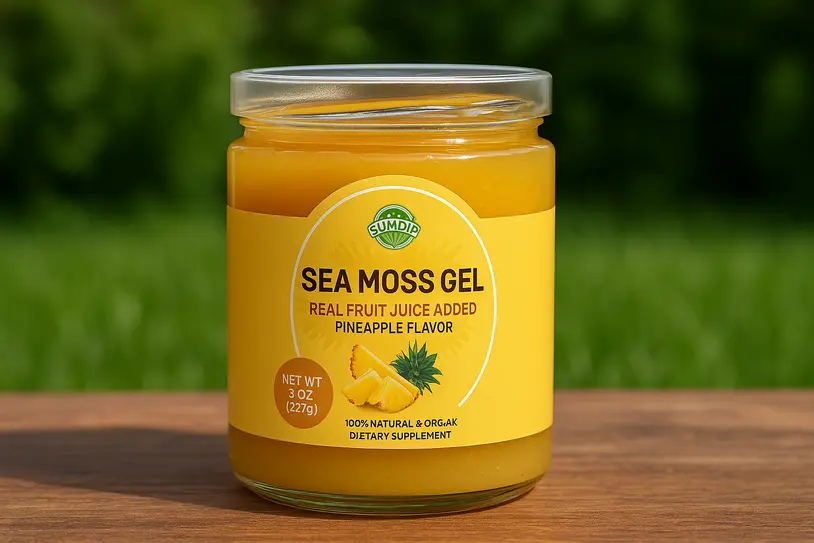

How to Use Sea Moss Gel: Daily Dosage and Creative Recipes
October 18, 2025
Want to learn more?
Visit one of our 3 locations
Our staff is here to help! Looking for a specific herb or supplement? We got you covered. Need help finding a remedy for a problem you Have? No problem!
Stop on by and see for yourself why Kushi Health & Wellness is one of the top Natural Health Stores in the Carolinas.
